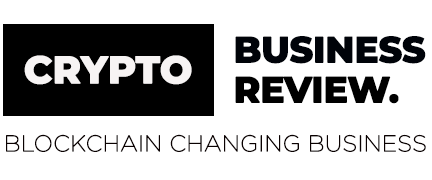EIN Newswire – By Kevin Cummings – NTX Inno Staff Writer
Blockchain technology has the potential to empower multi-billion dollar industries, creating thousands of jobs along the way. And the Texas Blockchain Council is looking to make the Lone Star State the center of that activity.
The nonprofit trade association, which aims to push the state to become a leader in the technology, has teamed up with the Chamber of Digital Commerce to release a Texas-specific version of the chamber’s “Legislator’s Toolkit for Blockchain Technology” that has several immediate and long-term policy proposals for Texas’ current legislative session to help promote more widespread use and adoption of blockchain uses.
“Much legislative activity has occurred at the state and federal level inquiring into and supporting the benefits of blockchain technology. Nevertheless, more needs to be done to support this industry,” the toolkit states. “The United States, and Texas, in particular, needs to foster that interest and energy to ensure that it remains a leader in technological advancement.”
While the Texas edition of the Legislator’s Toolkit says that regulatory uncertainty is the “biggest barrier” to blockchain adoption and the Brookings Institute classifies the state as having a reactionary stance against the technology, the Texas Blockchain Council sees potential in the state. Whinstone US, a colocation data center operator, owned by the German company Northern Data, is set to make Rockdale the site of a 100-acre cryptocurrency data mining facility – one of the world’s largest. According to the toolkit, the technology has the potential to generate millions of dollars in revenue while potentially creating thousands of jobs.
The Legislator’s Toolkit notes that the state has already enacted some regulations related to the technology. Among those are bills that have enabled the use of corporate books on blockchain, encourage education in cybersecurity and other blockchain-adjacent technologies, and include the terms “digital currency” under the state’s definition of funds, which allows law enforcement to target criminal transactions made with cryptocurrency.
“The transformative possibilities of blockchain and its tremendous positive impact for economic advancement have been recognized by policymakers on local, state, and federal levels,” the toolkit states. “Its ability to improve business processes, increase efficiency, and promote transparency in numerous industries is reforming how companies conduct business.”
However, the toolkit has several proposals to move the state along. In the immediate future, the Texas Blockchain Council and the Chamber of Digital Commerce recommend the state legislature enact policies to modify the state’s Uniform Commercial Code to clarify digital assets classification, pilot blockchain-related projects within state agencies and establish a working group to study digital identity. Another short-term proposal the toolkit puts forward – establishing a task force of promoting the use of blockchain technology in the state – has already been previously taken up by Representatives Giovanni Capriglione of Austin and Tan Parker of Flower Mound with their introduced HB 4517 that attempted to create a blockchain task force within the Legislature. That bill, however, died in committee in 2019.
The toolkit also puts forward multiple policies and concepts for the Legislature (listed below).
- Facilitate the creation of “regulatory sandboxes,” which create zones that allow for temporary changes to regulations and licensing requirements to test blockchain-related products in the consumer market.
- Limit and standardize virtual currency tax obligations, removing tax liabilities for every transaction point using cryptocurrencies.
- Allow taxes and fees owed to state agencies to be paid with virtual currency, further promoting cryptocurrency uses.
- Create tax credits and write-offs that are associated with developing blockchain-related technologies, as well as their uses and improvements.
- Authorize remote notary services, with electronic signatures recorded through a distributed ledger.
- Explore the use of blockchain technology in implementing an identification system that can be used universally.
- Use blockchain technology to enable voting and tracking ballots, which the toolkit says is more secure due to distributed ledgers’ unchanging nature.
- Consider allowing municipal bonds to be issued using blockchain technology, which the World Bank has already done to lower transaction costs by having fewer intermediaries involved.
- Promote the use of blockchain technology in the insurance and health care industries. For the insurance industry, in the areas of claims management, record keeping, identification and underwriting. For health care, in the areas of prescription supply chain monitoring, provider identification and record management.
The Texas Blockchain Council unveiled one of its first proofs-of-concept at the beginning of the year, spearheading an effort alongside Richardson-based decentralized public network Hedera Hashgraph partnered with Ohio-based content services provider Hyland to develop blockchain technology to authenticate government records and securely store them on Hedera’s public ledger. That initiative was taken to Texas’ Secretary of State office for potential statewide implementation.
The council is led by President Lee Bratcher, who also serves as the executive director for the Institute of Global Engagement at Dallas Baptist University, and VP of operations Michael Lewellen, the CEO of North Texas blockchain startup Tarski Technologies. Harmon is also on the council’s board of directors.
Texas is home to several blockchain startups. Hedera is one of the most notable – raising more than $100 million in funding with backers like BlockTower Capital, Oyster Ventures and Visary Capital. It has helped other startups in the North Texas region with its launch, like Dallas’ Hashing Systems, which develops decentralized apps on the Hedera platform and is backed by the company. Across the state, others support the blockchain ecosystem, like Austin cryptocurrency hedge fund Multicoin Capital Management, which raised at least $75 million for its flagship fund that included Marc Andreesen as an investor, according to Crunchbase.
“Blockchain and [distributed ledger technology] have enormous potential for innovation and economic growth, but this potential will not be realized in Texas or the United States without the support of policymakers,” the toolkit states. “Policymakers can work with innovators to craft responsible statutes and regulations that provide the clarity and flexibility necessary to stimulate blockchain development.”






